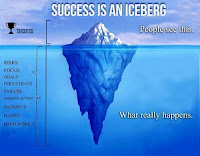Perhaps some of you are like me. Each year I find myself getting a little wound up about new initiatives and buzz words in education. It makes me anxious and I often wonder what will happen if we find out much later that this was not the best path. Recently I have been reading COVA by my Lamar University professors (Harapnuik et al., 2019) in which they discuss the importance of giving students choice, ownership, and voice through authentic learning experiences.
Truthfully I have been reading it with a skeptical lens as I do most new thoughts on education (or really anything I read). But then I came across a part in the beginning that immediately spoke to me and kept me wanting to read more. On page 15, Dr. Harapnuik begins to discuss how family often asks his opinion on hot topics in education, which led to a focus on four major presuppositions about education that made a lot of sense to me and will help me lower my anxiety as we begin a new year with a new principal.
Here is a brief synopsis of his 4 presuppositions and what they mean to me.
1. Anything we do for a learner will improve achievement.
This presupposition is based on the work of John Hattie and gives me immediate peace of mind. No matter what the initiative we will never harm students. Our efforts will not be lost, we just may find varying degrees of effectiveness. So buying into a new building's culture will never take you to hell in a hand-basket!
2. There has never been a better time to be a learner!
This speaks to the incredible technology we have at our fingerprints and not that lectures are better than ever! We need to redefine how we interact with our students and begin to bring in tools that will enhance our classrooms and alleviate the stress of being the main actor on the stage trying to do five shows a day. This thought then flows well into the next presupposition.
3. No new approaches to learning; just new ways to combine well established ideas.
The ideas that seem new are really very similar to established ideas from great educational minds like Piaget and Dewey. Newer technology now allows us to engage and break down the walls of our classroom; if we let it! I personally need to do more lesson study and really plan out my lessons and all the variables and curiosities that could arise so that I can help make all moments teachable. So instead of wasting time making worksheets and copies I should use my planning time to see how the dots will connect for each of my students as their cogwheels begin to spin. With more individuality comes more questions. As I get to know my students I will begin to see how their brains work and now that I'm free from being the sage I can now help facilitate individual needs and curiosities.
And most importantly...
4. There is no quick fix to enhancing learning.
We are a culture of fads and instant gratification. And that can bleed into our work. We need to pick a course of action and see it through. Don't throw the proverbial baby out with the bath water. Real change takes time. As a parent of an autistic child I have learned so much about patience and staying on track even when there seems to be no light or end to the tunnel. I need that same persistence and patience with my classroom.
So as this year approaches I plan to keep my cool and focus my attention on things that matter. Developing great lessons that have real world implications. Lessons where each of my students recognizes that they have choice, ownership and voice while I work to bring together tools that will provide them with authentic learning opportunities. If we create significant learning environments then we are doing our jobs. No worksheet will do it for us!


















